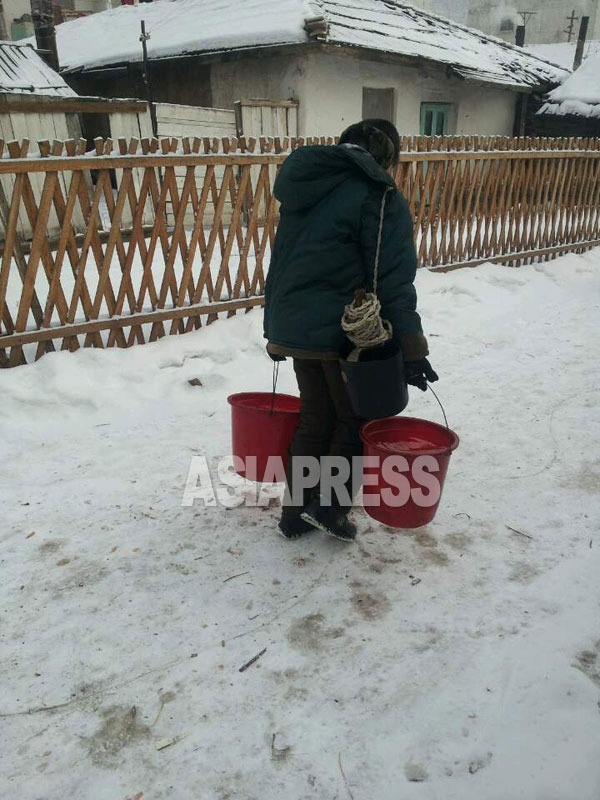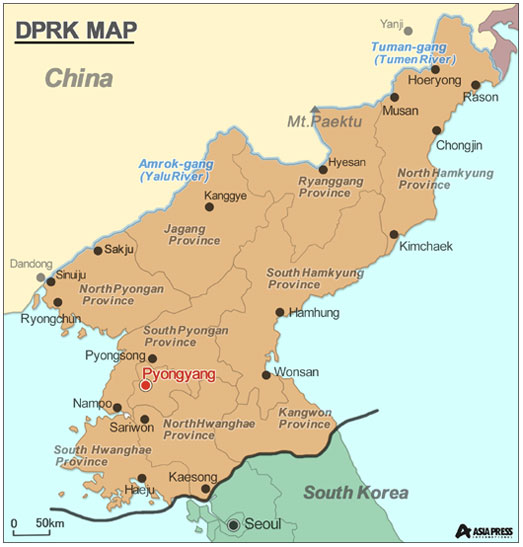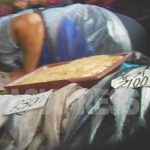
In severely cold North Hamgyung Province, government agencies and enterprises distributed coal to their employees earlier this month. The distributions are slightly larger than last year when low supplies forced many people to suffer through cold winters, so people are breathing a sigh of relief. Meanwhile, there are frequent robberies of coal because the distributions alone are not enough. A reporting partner in Hoeryong provided more details. (KANG Ji-won)
◆ 200 - 250 kilograms of coal only provides heating for one month
“Starting in December, government agencies and enterprises handed down coal for cooking and heating. There were differences in how much coal people got depending on the workplace. Places of authority, like the police and state security offices, got one ton of coal per person; however, ordinary enterprises generally handed just 25 kilograms in 6-8 bags. For example, a shoe factory in Hoeryong handed out 200 kilograms per person, while a cigarette factory handed out 250 kilograms per person.”
According to a defector originally from North Hamgyung Province, a single household needs 1.5 to 2 tons of coal for cooking and heating purposes during the winter. Despite the coldness of last year’s winter, people only got 150 kilograms, so many had to spend the deathly cold winter with other families or entire families stayed in one room.
Two years ago, workers were given 500 to 800 kilograms of cola each, which means that this year’s distribution is not even 15% of what they need. Two hundred to 250 kilograms of coal is not enough for a family to survive on for even one month, but people are nonetheless welcoming the distributions.
◆ Companies have no money to pay for coal transport
The distribution of coal involved people taking “coal slips,” which are government certified statements of payment issued to government agencies and enterprises, to mining or coal companies to exchange them for coal. Coal companies would then submit these coal slips to banks or government agencies to receive payment at a later time.
A major issue, however, has been the transport of coal from mines. The reporting partner explained:
“Each coal slip allows companies to give each laborer around 700 kilograms of coal. However, companies have no money to transport coal from mines. That’s why they are forced to sell the coal to cover the costs of borrowing a vehicle and to pay for fuel. Ultimately, each laborer only gets the remaining coal, equal to 200 to 250 kilograms.”
Companies sell the coal to wealthy wholesalers for 90 yuan per ton, and these wholesalers sell the coal retail for 32,000 North Korean won (around 26 yuan) per 250 kilograms. At one market in Hoeryong in mid-December, the price of one ton of coal was around 106 yuan. The reporting partner said that coal is circulating in large amounts in markets.
※ 1 yuan is around 181 South Korean won
“It’s gotten so cold that there’s a lot of people who are prioritizing the purchase of coal over food. There are even people who are heating up water in their coal stoves, placing the heated water in PET bottles, and then putting the bottles under their bed covers for heating at night. There’s a lot of people stealing coal and firewood from storage areas at night, so the authorities told neighborhood watch units on December 7 to intensify security.”
※ ASIAPRESS communicates with reporting partners through Chinese cell phones smuggled into North Korea.

- <Inside N. Korea>Bootleg liquor is an anti-state act The government launches harsh crackdowns, aims to monopolize distribution of alcohol and prevent shortages of grain
- <Inside N. Korea> The Major Changes Surrounding the November 26 Elections(2) Emergency interview with someone who voted in the election…Despite “Against” box at election booths, “nobody could vote against the candidate”
- <Inside N. Korea> A year after “Kim Ju-ae“ ’s first appearance, what kinds of things are people saying about her?
- <Inside N. Korea> The Major Changes Surrounding the November 26 Elections(1) For the first time, multiple candidates on secret ballots for preliminary election…a small change in past elections
- <Inside N. Korea> Illegally printed study materials gain in popularity…How is this possible given N. Korea’s strict controls on publishing?

![[Video Report] North Koreans Forced To Provide Labor](https://www.asiapress.org/rimjin-gang/wp-content/uploads/2017/08/1111-150x150.jpg)























